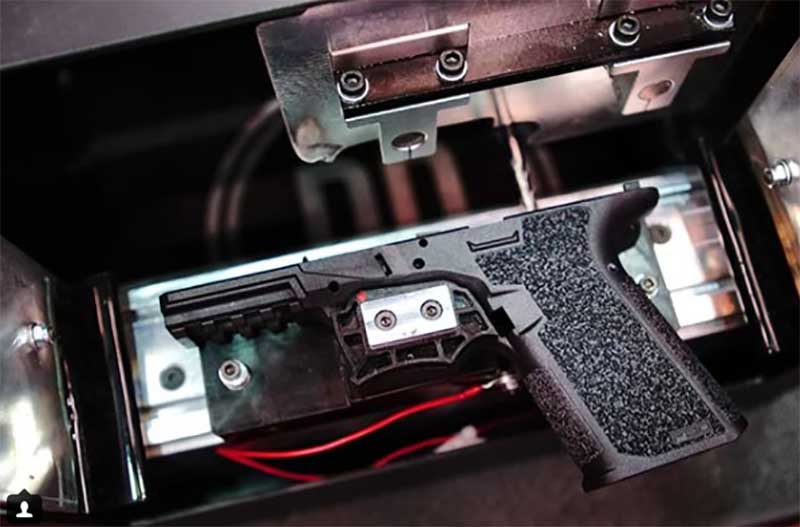On December 12, 2024, USA Today published a hit article about a “ghost gun” attempt to use the assassination of UnitedHealthcare CEO Brian Thompson as a reason to impose unconstitutional restrictions on homemade firearms.
Brian Thompson was apparently assassinated with a homemade gun. However, the manufacture of firearms did not interfere with his murder investigation. As in virtually all violent crimes, the suspect was arrested without the aid of gun-tracing data. Gun tracing has no measurable effect on solving violent crimes. It’s difficult to find violent crimes solved with gun trace data. The USA Today article is misleading from the first paragraph.
For decades, American detectives have used gun marks to bring breakthroughs in crime. Homicide investigators typically use the weapon’s ballistics and serial number, which are checked through a vast network of gun store records, manufacturer IDs, and criminal databases.
Although it is not explicitly stated, crimes ranging from gun possession and illegal sales to murder are mixed together. There appears to be no murder case solved through the use of trace data. It may have happened, but this correspondent has found no documented examples. If there were any examples, there would be loud cries from the ATF and those calling for the disarmament of the public. it’s not. The USA Today article doesn’t mention a single violent crime that was solved using tracking data.
Canada has required registration of all handguns since 1934. Canada’s handgun registration is far more effective and intrusive than the U.S. gun tracking system. In 1995, when Canada’s Handgun Registry had been in use for more than 60 years, the Canadian Department of Justice could not identify a single instance in which the Handgun Registry had helped solve a crime. From publicsafety.gc.ca:
Justice Department officials admitted that they could not identify a single instance in which handgun registration helped solve a crime (Hansard, 1995, p. 12,259).
Gun registration is not an effective way to solve violent crime. Gun tracking in the United States is far less effective than gun registration.
The USA Today article employs a scare tactic by citing the increasing number of home-made guns being discovered by law enforcement. It’s an irrelevant number. Most firearms in the United States are unregistered and untraceable. Given that there are more than 500 million firearms in private hands in the United States, a few thousand, or even millions, probably won’t make much of a difference.
This is a fear tactic used to demand legislation, no matter how minor or irrational the actual threat. Being shot with a manufactured gun is no more likely to injure or kill you than being shot with a homemade gun. Manufactured guns consistently outnumber home-made guns by thousands to one.
This article spends a fair amount of time talking about how people create illegal devices to circumvent federal and state laws. So…what do you mean? The manufacture of this device is already illegal. Even if we make it double or triple illegal, nothing will change.
Finally, the article provides a realistic assessment, quoting gun control advocates at the Giffords Law Center. More laws won’t stop people from making their own guns.
“The genie is out of the bottle,” he said.
Analysis: This fear tactic is used to promote the idea of government control of firearms. Fortunately, most people realize that this is an area where the government controls law-abiding people, but firearms are always available to criminals, government officials, or criminal government officials. Using a small number of cases and false or non-existent statistics has been a favorite method of passing bad laws for much of American history. A good example is the ban on switchblades. Short-barreled rifles were banned in 1933 by some stupid, ignorant, or Machiavellian legislators in Minnesota.
Laws restricting the freedom to own and carry (storage and carry) firearms do not reduce homicides and suicides. Registering guns will not reduce crime or suicide. Registration is gun confiscation that takes place over time, perhaps over generations. Homemade guns are not subject to gun registration. Americans have always had the legal right to manufacture their own guns. Courts should recognize this inalienable right.
About Dean Weingarten:
Dean Weingarten is a peace officer and military veteran who served on the University of Wisconsin Pistol Team for four years and was first certified to teach firearms safety in 1973. He taught Arizona’s concealed carry course for 15 years until the constitutional goals were achieved. Carry achieved. He has degrees in meteorology and mining engineering and retired from the Department of Defense after a 30-year career in Army research, development, test, and evaluation.




